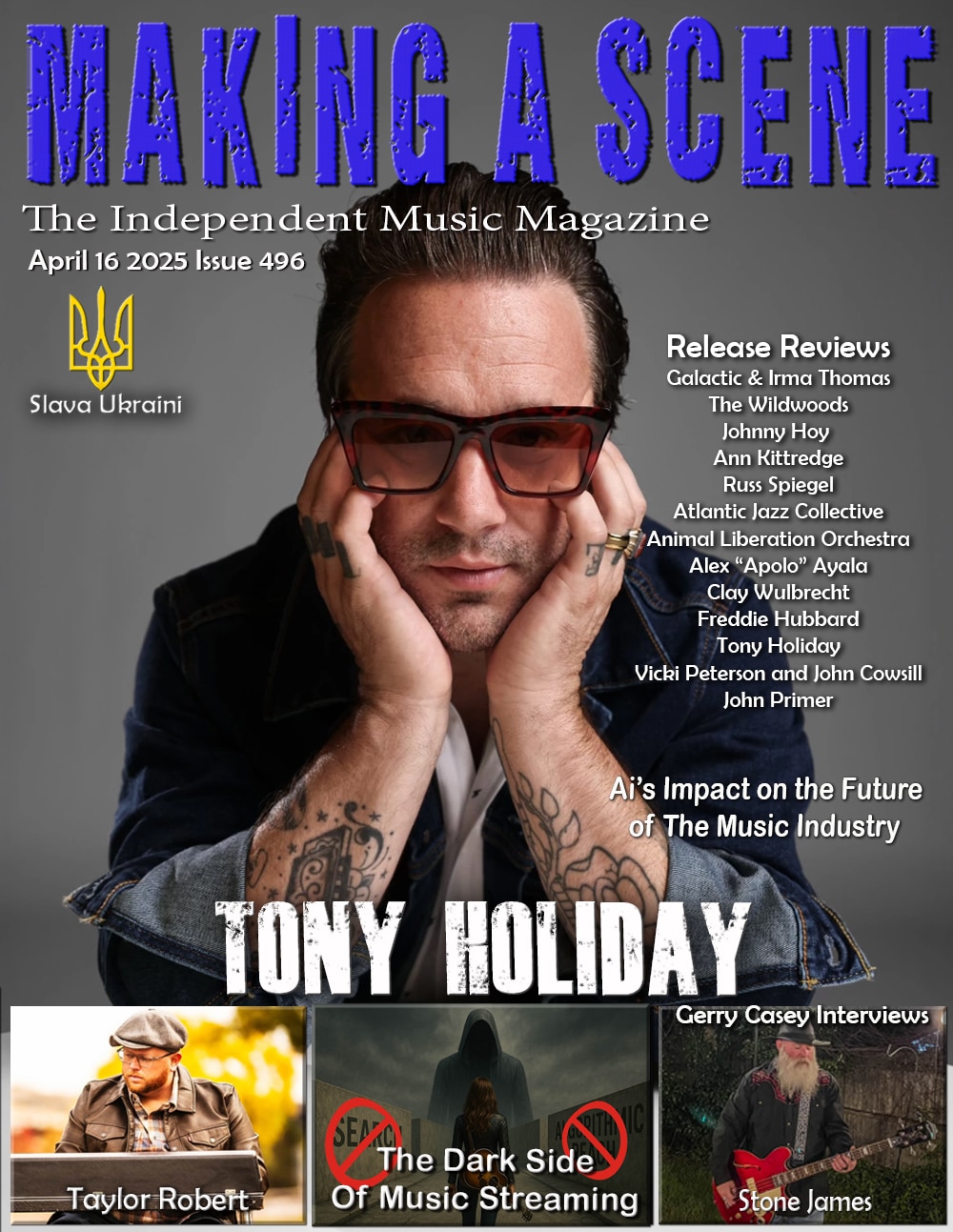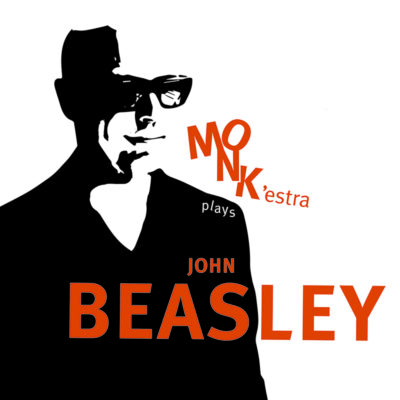John Beasley and MONK’estra Plays John Beasley
John Beasley and MONK’estra
Plays John Beasley
Mack Avenue
This year seems to especially have many jazz artists turning to the music of Thelonious Monk but this is nothing new for John Beasley and his MONK ‘estra who have plied their first two volumes of Monk material into two GRAMMY nominations. Over the course of those two albums, bandleader/composer/arranger John Beasley has reimagined Monk’s timeless compositions through his inventive, big band which navigates the legend’s angular eccentricities with boisterous swing to raucous funk to Afro-Cuban explosiveness. But here, the third installment, in keeping with the legend’s unpredictability, the MONK’estra shifts their focus to the leader’s own compositions, mixing them with a quartet of Monk classics and a tune apiece from Duke Ellington and Charlie Parker, the latter of home celebrated his centennial birthday on August 29.
This is a ‘full circle” effort in more ways than one as Beasley’s arranging talents take a back seat to his piano playing which graces every track and various configurations enable Beasley to reunite with several now-formidable artists with whom he performed with in his formative years nearly three decades ago. Six of these tunes are performed with a full big band, an 16 piece ensemble (17 with an added percussionist on two tunes), joined on Ellington’s “Come Sunday” by vocalist Jubilant Sykes, on “Rhythm A Ning” by organ great Joey DeFrancesco, and on “Locomotive” by flautist Hubert Laws. The other tunes represent an octet, a nonet, a quartet, a trio, and two differently populated quintets. Some of them feature bassist John Patitucci and drummer Vinnie Colaiuta, his bandmates in the early 90s quartet Audio Mind and Patitucci’s bands. Beasley met DeFrancesco in the Miles Davis band in 1989 and repays a favor to Hubert Laws who hired a 20-year old Beasley and Patitucci to play Carnegie Hall. Another standout guest without any particular related lineage to Beasley’s bands is first-call harmonicist Gregoire Maret, who appears on “Monk’s Mood” and “Five Spot.”
Beasley says, “The band takes its mission from Monk’s boldness, courage and experimentation,” he says. “Monk was always willing to let go, let whatever happens happen and make music out of that, while maintaining his unique sense of groove.”. Each of his Beasley’s own compositions offer a snapshot of one of his personal or musical influences, beginning with the opening track, “Steve-O.” Featuring the full big band, the dizzying and playful piece is a glimpse into the eclectic imagination of saxophonist Steve Tavaglione, the fourth member of Audio Mind. The tender “Song for Dub” was penned for Beasley’s uncle, a World War II veteran who conquered alcoholism after his return from the battlefield. While there are plenty of examples of sheer big band power, this ballad rendition showcases the lush and beautiful qualities of his big band.
The band slims down to a septet for a pair of tributes to legendary musicians who’ve passed on: “Sam Rivers,” a jauntily jagged piece inspired by the great saxophonist’s Blue Note albums; and “Masekela,” honoring the late South African trumpeter and activist who Beasley got to know through their collaborations at International Jazz Day performances in recent years. (Note that Terreon Gully adds percussion on the tune, thereby making it an octet). John Patitucci and Vinnie Colaiuta form the core of the rhythm section for this lineup, as they do on the quintet piece “Implication,” a Beasley original that bridges the influence of Monk with North African traditions. Patitucci, Colaiuta and Beasley form a trio for “Be.YOU.tiful,” which the pianist wrote inspired by a conversation Beasley had with Patitucci regarding the legendary saxophonist Wayne Shorter, with whom Patitucci is core member of Shorter’s quartet.
The MONK’estra returns to its main inspiration for four tracks: “Monk’s Mood,” which receives a thoroughly contemporary feel, its familiar melody refreshed by the distinctive sound of Grégoire Maret’s virtuosic harmonica (as the great vocalist Dianne Reeves says, “Always brings the fire”). Maret also enlivens the Horace Silver-inspired hard bop of Beasley’s “Five Spot,” a quintet piece rounded out by MONK’estra mainstays saxophonist Bob Sheppard, bassist Benjamin Shepherd and drummer Terreon Gully.
Joey DeFrancesco’s unmistakable organ sound graces Monk’s “Rhythm-a-Ning,” while Hubert Laws’ flute is the perfect fit for Beasley’s seductive, soulful arrangement of “Locomotive.” The inclusion of “Off Minor,” transformed with a Roots-inspired hip-hop vibe, was inspired by Beasley’s mentor Freddie Hubbard, who often included the tune in his own sets.
Finally, Beasley gives the MONK’estra treatment to pieces by two other jazz icons: Bird’s “Donna Lee” percolates with an Afro-Cuban groove and a nod to Jaco Pastorius’ version of the tune, while Duke Ellington’s “Come Sunday” ends the album on a spiritual note, with classical baritone Jubilant Sykes intoning Ellington’s plea for peace and guidance in a stirring performance responding to the country’s sadly still-relevant racial divisiveness. Beasley days, “We are living through times when misinformation and blatant hate are given platforms. And, Covid-19 created an even more hyper anxiety-fueled world, so it’s important to create music that can provide a respite and also be humanizing.”
This is top shelf music from start to finish. Kudos to Beasley for changing up the configurations and inviting the top echelon guests to push this perhaps beyond the Nomination category, although to be fair, there will be significantly competitive entries in the Grammy Big Band category this year.
- Jim Hynes
More of John Beasley
Beasley worked with iconic trumpeters Freddie Hubbard and Miles Davis while still in his 20s and has gone on to play with such greats as Herbie Hancock, Al Jarreau, Steely Dan, Chaka Khan and Christian McBride. He serves as Music Director for the Herbie Hancock institute’s globe-spanning International Jazz Day concerts while touring the world with the MONK’estra. In addition, he has worked extensively in film and television, primarily on the soundtracks of noted composer Thomas Newman, including the James Bond hits Spectre and Skyfall. Along the way, Beasley has garnered five GRAMMY® Award nominations and an Emmy® Award.
Discover more from Making A Scene!
Subscribe to get the latest posts sent to your email.














































